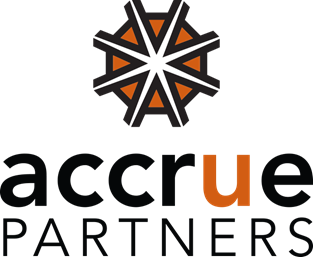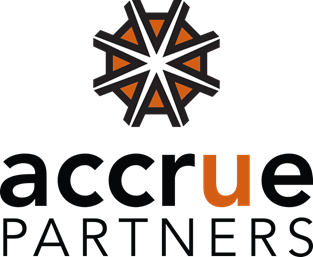
All job seekers are familiar with one of the last questions an interviewer asks during an interview: “Do you have any questions for me?”
Every minute of face time with an interviewer gives a candidate the opportunity to make a stronger impression with an employer. If you have an interview coming up, expect to receive the chance to ask the interviewer a question or a few yourself.
The right questions can help strengthen your position as a candidate. Consider these.
1. How Would You Describe Your Company Culture?
This question shows your interest in ensuring you fit in with the employer’s company culture. Company culture matters, because as Gallup research points out, the right culture helps a business attract better candidates, retain top talent and increase engagement and productivity.
Based on the interviewer’s response, candidates can provide examples of how they’d fit in with the company culture or aspects to the company culture that resonate with them.
2. What Are Your Diversity, Equity and Inclusion Initiatives?
Diversity, equity and inclusion (DE&I) are hot topics in professional settings today. Research firms like McKinsey & Company have shown that strong DE&I strategies can translate to better business results, as DE&I drives innovation and makes employees feel more like a valuable part of the team.
Asking this question demonstrates that DE&I principles matter to you and that you’re interested in supporting them at your employer.
3. How Do You Support Work-Life Balance?
It’s no secret to employers: work-life balance is one of the most sought-out characteristics for candidate workplaces today. According to Employee Benefit News, in 2023, 63% of people would choose a better work-life balance over pay.
A question about work-life balance shows employers it’s important to the candidate, which also shows employers a candidate knows their self-worth. The answer can help guide candidates as they determine whether or not the employer is a good fit for them, as well.
4. What Are 3 Traits You’d Use to Describe a Top Performer?
This question is valuable to ask in an interview for a variety of reasons. It gives you the opportunity to show you’re interested in succeeding for the company and want to become a top performer yourself. It also shows the candidate’s interest in the company’s success, as you give the interviewer the opportunity to show off what makes their best employees so great.
After the interviewer names various top performer traits, you can reiterate how you fit those traits. You can provide a specific example of how you’ve demonstrated a trait, or agree that you possess similar characteristics that can benefit the company.
5. How Would You Describe Career Development at Your Company?
Especially since the fallout of the Great Resignation in the U.S. in recent years, companies have become more concerned with retention. According to a November 2022 report by CIO Dive, retention is a top issue for today’s human resources professionals, even overtaking talent acquisition due to rising turnover costs.
When you ask about career development opportunities, you show that you’re interested in growing professionally with a company long-term. Career development requires growing and learning on the job, which are also attractive characteristics to employers today.
6. What Learning and Development Opportunities Do You Offer?
Speaking of learning on the job, learning and development help strengthen employee skill sets, which can lead to increased company success. As the University of Pennsylvania points out, learning and development can help improve retention, increase employee engagement and help businesses stay competitive as many skills change or become obsolete.
Asking about learning and development opportunities shows you’re eager to learn skills that will help an employer succeed. It also shows you’re curious and driven, which many companies view as desirable traits in employees.
7. Why Do You Enjoy Working for This Company?
Interviewers don’t often get asked about themselves personally. This question gives the interviewer a chance to share their own story, which can help deepen the connection between them and the person who’s being interviewed.
The answer to this question can also reveal valuable information to the candidate. The candidate can get to know a bit more about the interviewer’s personality, which could reflect on the company culture. The candidate can learn a real-life anecdote that illustrates what working for the company is like. The answer could either make the employer more relatable, or reveal to the candidate that their values don’t match the company’s.
8. What Are Some Examples of Projects Someone in This Position Has Worked on or Would Complete?
This job-specific question goes beyond the basic job description to give the candidate a clearer view of the role. It also gives the candidate the opportunity to respond with relatable examples of work they’ve done that’s similar.
This question relates to, “How would you describe the typical week on the job in this position?” It gives the interviewer the opportunity to present more details about the role, so both the interviewer and the candidate can determine if the applicant makes sense for the position.
9. Is It Possible to Connect with the Person Who Manages This Position?
The person hiring a candidate may not be the person who manages the role. Managers are the single most important factor influencing employee engagement, according to Gallup research. For candidates, meeting a potential manager can influence them when deciding on a company to work for.
It may not be possible to meet and talk with a manager at the job interview, especially if the hirer hasn’t prepared for that in advance. Candidates who are scheduled for a job interview can put in an advanced request to meet their would-be manager at the interview, or at least ask to be able to connect with them afterward via email, LinkedIn and/or a video call. This question shows an interviewer you value the relationship you’d have with your manager and sets it up for success in advance.
10. What Next Steps Can I Expect?
This final question in an interview helps candidates gain a clear expectation of next steps in the hiring process. This is helpful, so you don’t inadvertently pester a hirer, but you can also proactively follow up if the expectations don’t follow through.
Asking about next steps shows that the candidate is interested in continuing the hiring process with the employer. It establishes a commitment that the employer will follow up with the candidate, whether they’re hired or not. It gives candidates the opportunity to continue a relationship with the employer, which can benefit the candidate long-term, even if they’re not immediately hired.
Questions Show You’re Interested
In a job search, it’s just as important for an employer to fit your needs as it is for you to fit theirs. Asking thoughtful questions like the ones listed here can help give you a better understanding of the company, so you can confirm the employer aligns with your career goals.
At the end of an interview, you can also ask if it’s OK to follow up with additional questions if they come up. This is another way to demonstrate your continued interest in an employer and keep the conversation going post-interview.
If you’re a job seeker or a professional who’s open to new opportunities, check out our career bank or connect with our recruiting team. We’ll help you find relevant opportunities where you want to work.





